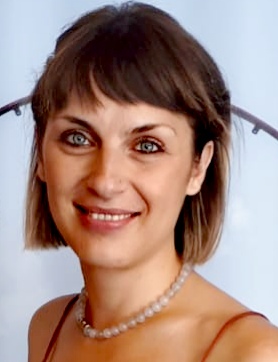Studying at the University of Verona
Here you can find information on the organisational aspects of the Programme, lecture timetables, learning activities and useful contact details for your time at the University, from enrolment to graduation.
Academic calendar
The academic calendar shows the deadlines and scheduled events that are relevant to students, teaching and technical-administrative staff of the University. Public holidays and University closures are also indicated. The academic year normally begins on 1 October each year and ends on 30 September of the following year.
Course calendar
The Academic Calendar sets out the degree programme lecture and exam timetables, as well as the relevant university closure dates..
| Period | From | To |
|---|---|---|
| I semestre (Lingue e letterature straniere) | Sep 28, 2020 | Jan 9, 2021 |
| II semestre (Lingue e letterature straniere) | Feb 15, 2021 | May 29, 2021 |
| Session | From | To |
|---|---|---|
| ESAMI LINGUE - sessione invernale | Jan 11, 2021 | Feb 13, 2021 |
| ESAMI LINGUE - sessione estiva | May 31, 2021 | Jul 24, 2021 |
| ESAMI LINGUE - sessione autunnale | Aug 30, 2021 | Sep 25, 2021 |
| Session | From | To |
|---|---|---|
| LAUREE LINGUE - sessione autunnale (a.a. 2019/20) | Nov 2, 2020 | Nov 7, 2020 |
| LAUREE LINGUE - sessione straordinaria (a.a. 2019/20) | Apr 7, 2021 | Apr 13, 2021 |
| LAUREE LINGUE - sessione estiva (a.a. 2020/21) | Jul 5, 2021 | Jul 10, 2021 |
| Period | From | To |
|---|---|---|
| Festa di Ognissanti | Nov 1, 2020 | Nov 1, 2020 |
| Festa dell'Immacolata | Dec 8, 2020 | Dec 8, 2020 |
| Festa della liberazione | Apr 25, 2021 | Apr 25, 2021 |
| Festa del lavoro | May 1, 2021 | May 1, 2021 |
| Festa del Santo Patrono | May 21, 2021 | May 21, 2021 |
| Festa della Repubblica | Jun 2, 2021 | Jun 2, 2021 |
Exam calendar
Exam dates and rounds are managed by the relevant Foreign Languages and Literatures Teaching and Student Services Unit.
To view all the exam sessions available, please use the Exam dashboard on ESSE3.
If you forgot your login details or have problems logging in, please contact the relevant IT HelpDesk, or check the login details recovery web page.
Academic staff
Bejarano Bejarano Daniel Eduardo
 danieleduardo.bejaranobejarano@univr.it
danieleduardo.bejaranobejarano@univr.it
 natascia.fregonese@univr.it
natascia.fregonese@univr.it
 piergiovanna.grossi@univr.it
piergiovanna.grossi@univr.it
 dunia.houranimartin@univr.it
dunia.houranimartin@univr.it
 elena.mattei@univr.it
elena.mattei@univr.it
 sara.paolini@univr.it
sara.paolini@univr.it
Study Plan
The Study Plan includes all modules, teaching and learning activities that each student will need to undertake during their time at the University.
Please select your Study Plan based on your enrollment year.
1° Year
| Modules | Credits | TAF | SSD |
|---|
1st foreign language2nd foreign language1st foreign literature2nd foreign literature2° Year activated in the A.Y. 2021/2022
| Modules | Credits | TAF | SSD |
|---|
1st foreign language2nd foreign language1st foreign literature2nd foreign literaturePhilology related to 1st or 2nd foreign language3° Year activated in the A.Y. 2022/2023
| Modules | Credits | TAF | SSD |
|---|
1st foreign language2nd foreign language| Modules | Credits | TAF | SSD |
|---|
1st foreign language2nd foreign language1st foreign literature2nd foreign literature| Modules | Credits | TAF | SSD |
|---|
1st foreign language2nd foreign language1st foreign literature2nd foreign literaturePhilology related to 1st or 2nd foreign language| Modules | Credits | TAF | SSD |
|---|
1st foreign language2nd foreign languageLegend | Type of training activity (TTA)
TAF (Type of Educational Activity) All courses and activities are classified into different types of educational activities, indicated by a letter.
Spanish literature 3 (2022/2023)
Teaching code
4S002948
Teacher
Coordinator
Credits
6
Language
Spanish
Scientific Disciplinary Sector (SSD)
L-LIN/05 - SPANISH LITERATURE
Period
I semestre (Lingue e letterature straniere) dal Sep 26, 2022 al Dec 23, 2022.
Learning objectives
The main formative aim of the teaching is to make the students acquirea high-level competence in critically approaching the classics of Spanish literature in depth. The results expected from their learning are the following: -Knowledge and heightened understanding: in-depth knowledge of the Spanish literature of the scheduled period: historical context, texts, genres, movements, and authors dealt with in the taught module, especially with reference to the themes of cultural interchange and to the formal differentiations of the literary phenomena. - “Applied” knowledge and heightened understanding: the students will acquire the necessary methodologies for putting them to use in working on literary texts within a historical and comparative perspective and in interpreting complex texts and implied meanings; they will have to be able to express themselves in fluent Spanish, arguing complex topics in a clear, ordered, and detailed way.
Prerequisites and basic notions
The Spanish Literature 3 exam can only be taken after having passed the second year’s exams of Spanish Language and Literature.
Program
Il viaggio dei pícaros e della pícaras nelle frontiere dei generi letterari
Compulsory Bibliography:
*Lazarillo de Tormes, a cura di A. Gargano, Venezia, Marsilio editore, 2017.
* Francisco Rico, La novela picaresca y el punto de vista, Barcelona, Seix Barral, 1970 (F. Rico, Il romanzo picaresco e il punto di vista, Milano, Bruno Mondadori Editore, 2001).
*Fernando Rodríguez Mansilla, prólogo a Picaresca femenina de Alonso de Castillo Solórzano: Teresa de Manzanares y La Garduña de Sevilla, Madrid, Universidad de Navarra-Iberoamericana-Vervuert, 2012, pp. 9-158.
*Also, one of the following books:
*Alfonso de Castillo Solórzano, Las harpías de Madrid, edición de Pablo Jauralde Pou, Madrid, Castalia, 1985.
*Picaresca femenina de Alonso de Castillo Solórzano: Teresa de Manzanares y La Garduña de Sevilla, Alonso de Castillo Solórzano, ed. de Fernando Rodríguez Mansilla, Madrid, Universidad de Navarra-Iberoamericana-Vervuert, 2012 (one of the two works)
*Francisco López de Úbeda, La pícara Justina, ed. David Mañero, Madrid, Cátedra.
*Mateo Alemán, Guzmán de Alfarache.
*Francisco de Quevedo, El Buscón, ed. de D. Ynduráin, Madrid, Cátedra.
*Vicente Espinel, Marcos de Obregón.
*Carlos García, La desordenada codicia de los bienes ajenos.
*Juan de Luna, Segunda parte del Lazarillo.
*Antonio Enríquez Gómez, El Siglo pitágorico y vida de Gregorio Guadaña, Madrid, Cátedra.
*La vida y hechos de Estebanillo González: hombre de buen humor compuesto por el mesmo, ed. de A. Carreira y A. Cid, Madrid, Cátedra, 2018 (2 voll.)
°Further information about bibliography will be held during the first lesson.
Bibliography
Didactic methods
The course will consist of a series of lectures which foresee the active involvement of the students. Lectures will be held in Spanish.
If you need to isolate because you test positive for Covid, please contact the teacher to arrange for supplementary material.
Learning assessment procedures
The exam will be an oral discussion in Spanish.
* ERASMUS students are asked to contact with the teacher at the beginning of the course to agree together on the exam methods.
Evaluation criteria
A final oral exam will assess:
- a deep knowledge of primary and secondary texts;
- the capacity to read and interpret the literary texts analyzed;
- the capacity to articulate effectively the information and critical assessments concerning texts and topics discussed in class;
- the capacity to express and critically argue in Spanish.
Criteria for the composition of the final grade
The final mark will result from the average of the grades assigned according to the four criteria described above.
Exam language
spagnolo
Type D and Type F activities
To discover all the teaching activities accredited by the foreign teaching college click here
Career prospects
Module/Programme news
News for students
There you will find information, resources and services useful during your time at the University (Student’s exam record, your study plan on ESSE3, Distance Learning courses, university email account, office forms, administrative procedures, etc.). You can log into MyUnivr with your GIA login details: only in this way will you be able to receive notification of all the notices from your teachers and your secretariat via email and also via the Univr app.
Student login and resources
Gestione carriere
Attendance and location
Attendance is not mandatory.
More detailed information on attendance requirements, please refer to the “Regolamento del corso di studio”, available under the “Regolamenti” section in “Il Corso”. While the Student Handbook does not require mandatory attendance, it is recommended to confirm specific attendance policies with your professors for each course, lab, or practical training.
Part time enrolment is an option. For more information, visit the Possibilità di iscrizione Part time.
Classrooms and exam locations are:
Classes and exams are held at the following locations:
- Polo Zanotto (close to the Foreign Languages and Literatures building)>
- Polo Santa Marta
Assegnazione tutore
Attività accreditate D/F
Calendario didattico dettagliato
Cambio lingua curriculare
Competenze informatiche
Competenze linguistiche (prima e seconda lingua)
Competenze linguistiche in triennale (terza lingua CFU F)
Compilazione del piano didattico
Corso di Lingua catalana a.a. 2024-25
Corso di Lingua portoghese
Erasmus+ e altre esperienze all'estero
Linguistic training CLA
Presentazione dei corsi di studio e Open day
Graduation
Saperi minimi
Stage e tirocini
Nel piano didattico della laurea triennale in Lingue e letterature per l’editoria e i media digitali (L11 ED-DH) è previsto un tirocinio/stage obbligatorio (CFU 6).
Le attività di stage sono finalizzate a far acquisire allo studente una conoscenza diretta in settori di particolare interesse per l’inserimento nel mondo del lavoro e per l’acquisizione di abilità professionali specifiche.
Le attività di stage sono svolte sotto la diretta responsabilità di un singolo docente presso studi professionali, enti della pubblica amministrazione, aziende accreditate dall’Ateneo veronese.
I crediti maturati in seguito ad attività di stage saranno attribuiti secondo quanto disposto nel dettaglio dal “Regolamento d’Ateneo per il riconoscimento dei crediti maturati negli stage universitari” vigente.
- Tutte le informazioni in merito agli stage per futuri studenti sono disponibili alla pagina Stage e tirocini.
- Tutte le informazioni in merito agli stage per studenti iscritti sono pubblicate in MyUnivr - come fare per - stage e tirocini.
- Tutte le informazioni in merito agli stage per le aziende sono disponili alla pagina Stage e tirocini per azienze.
Ulteriori informazioni al seguente link https://www.univr.it/it/i-nostri-servizi/gestione-carriere-studenti-lingue-e-letterature-straniere/stage-e-tirocini-lingue-e-letterature-straniere

 +39 045802 8409
+39 045802 8409










































